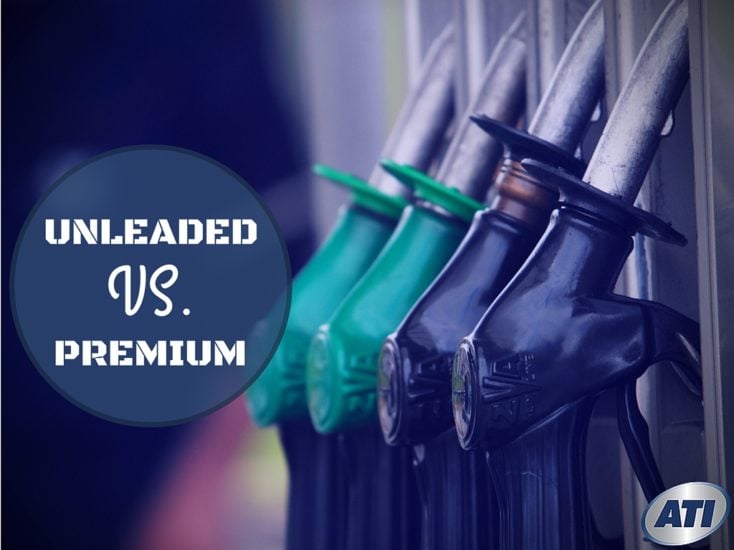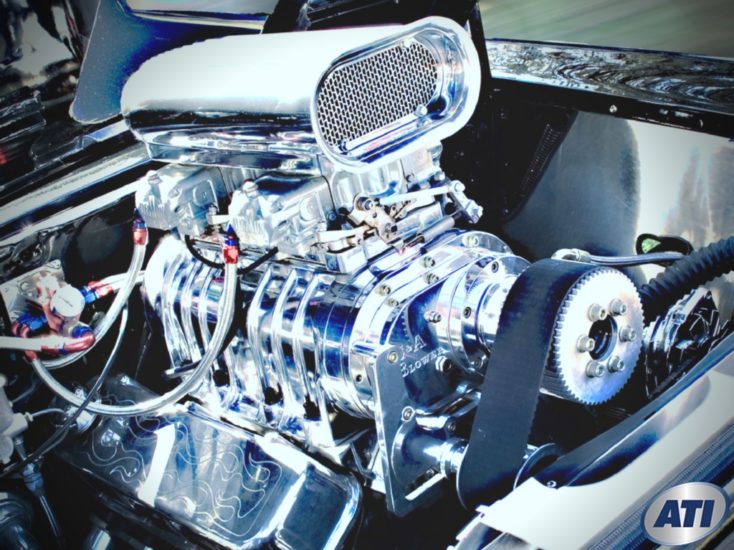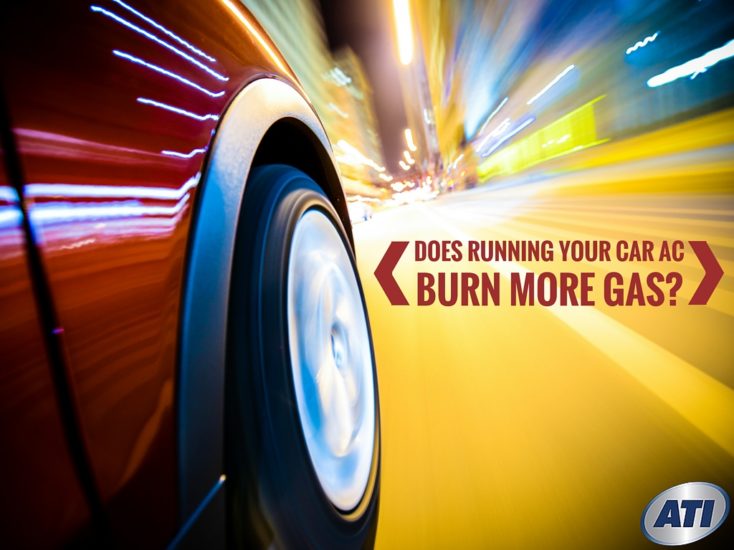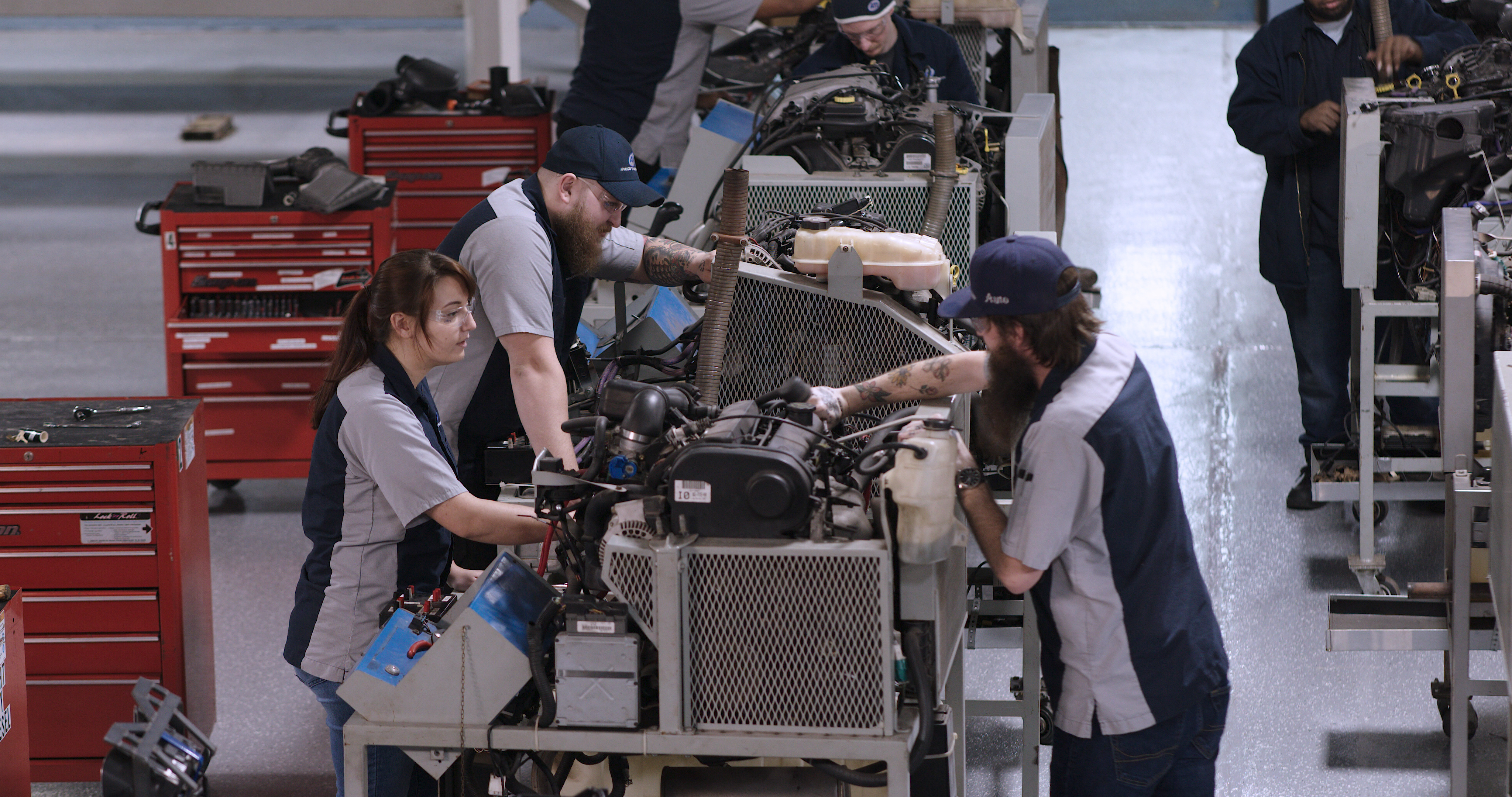Unleaded vs. Premium: What Is Really the Best Gas to Use?

Driving home from work, the familiar ding from your dash draws attention to the glowing orange light by the gas gauge, signaling the vehicle’s need for more fuel. But you’re on another side of town, away from your usual gas station, and the only station around is a discount brand station. Is the cheaper gas alright for your engine? Is there a reduction of performance for one brand of fuel versus the other? Can regular, unleaded gasoline damage your engine and is there a chance premium gasoline can improve it? Regardless of the make or model of your vehicle, these are legitimate questions you should be asking! This way, you’ll know whether to stop at an off brand gas station, or to pay the extra money (often 50 cents or more) for the top brand, premium gasoline.
The Difference Between Unleaded & Premium Gas
Before breaking down the difference between gasoline brands, knowing the difference between unleaded regular and premium is the first, most important step. To explain this, a bit of combustion knowledge and chemistry is required.
Every vehicle runs through the process of combustion. During this process, the injected gasoline is ignited by a spark plug in the engine compartment. But the spark plug doesn’t fire instantly. Instead, there is a mix of air and fuel running along the spark plug, where the flame catches and expands, eventually setting the remaining air and fuel on fire. It takes some time for the literal explosion to occur.
Knock Knock . . . in Your Engine
Should any part of the air and fuel mixture fire off too soon or leak out before the flame from the spark plug ignites, it causes what is known as an “engine knock.”
This knock is a clunking sound you might hear from the engine while driving. Of course, it’s not a good sound and you want to avoid it. So, why does the engine sometimes “knock” and allow areas of the air and fuel mixture to be heated and fire off too soon? That is where the chemical aspect comes in.
What are Octane Levels?
The oil used to produce gasoline is a hydrocarbon fuel, which means individual molecules hold both carbon and hydrogen. Different kinds of fuels have different combinations of hydrocarbons. Isooctane, or “octane,” is resistant to the spontaneous exploding, so the higher the octane, the less chance there is to experience this knocking in the engine. If you look at the gas pumps at any gas station, the “Premium” fuel has a higher octane level on it. The premium octane is usually going to sit at around 91, while the regular gasoline is right around 85 to 87.
In terms of actual energy produced, including improved MPG, there is actually no real difference between unleaded and premium. Instead, a higher octane allows for more aggressive driving and a more aggressive engine. As an example, race car drivers use fuel with an octane rating often above 100, so the engine receives superior fuel that does not prematurely fire off during performance racing.
Okay, So Premium Gas is Better?
It might seem like premium is the better fuel, and in terms of octane, it is, but that doesn’t mean your vehicle should receive it. Premium levels of octane are designed for aggressive, high performance engines. Lower performance engines don’t need premium fuel, and the superior fuel generally isn’t going to do anything but waste your money. To determine whether or not your vehicle needs premium or is fine on regular, check the owner’s manual of your vehicle. If you have a performance car, such as a Corvette, Porsche, or really anything designed specifically for performance, there is a good chance premium is better for your car. Otherwise, the engine isn’t able to take advantage of the superior octane, so it does nothing but cost you more per fill-up.
Off Brand Station Gas vs. Name Brand Gas
Now that you understand the regular vs. premium aspect of fuel, you’ll have a better understanding as to whether or not an off brand or name brand is better for your vehicle. You are going to see similar octane levels at the off brand gas station. The regular gasoline might have an 85 octane level instead of an 87, but the occasional fill-up with this fuel isn’t going to harm your engine. The difference calculation to 100 (13 when then octane is 87) is made up of a specialized formula the gas station creates of different chemical elements designed to clean your engine. While some stations say theirs is better, most car professionals, such as those at Edmunds state there is no noticeable difference in performance, so go with what’s cheap.
Have you always wanted to learn how to work on cars?
Auto Mechanic School could be Your Next Step!
At Advanced Technology Institute, we teach diagnostic procedures and service management through our hands-on Automotive Technology diploma program. With our year-round program, you could be well on your way to a career in auto repair in as little as 19 months! Contact us at 800-468-1093 or request information today.
The ceremony is about to begin! #ATI #ATIGRAD pic.twitter.com/8SJb0Nb02L
— ATI (@AdvTechInst) August 14, 2015
DISCLAIMER – Advanced Technology Institute (ATI) makes no claim, warranty or guarantee as to actual employability or earning potential to current, past or future students or graduates of any educational program offered. The Advanced Technology Institute website is published for informational purposes only. Every effort is made to ensure the accuracy of information contained on the AUTO.edu domain; however, no warranty of accuracy is made. No contractual rights, either expressed or implied, are created by its content.
For more information about Advanced Technology Institute or any of our programs click here: http://www.auto.edu/ or http://ow.ly/VoydP.
Industry Knowledge
Welcome to the Advanced Technology Institute's Blog, your resource for industry insights and discussions on technologies shaping the future of automotive, heavy vehicle, hvac, welding, and other related career paths.
Explore how ATI's curriculum and hands-on learning opportunities can propel your career in the tech-driven world.


